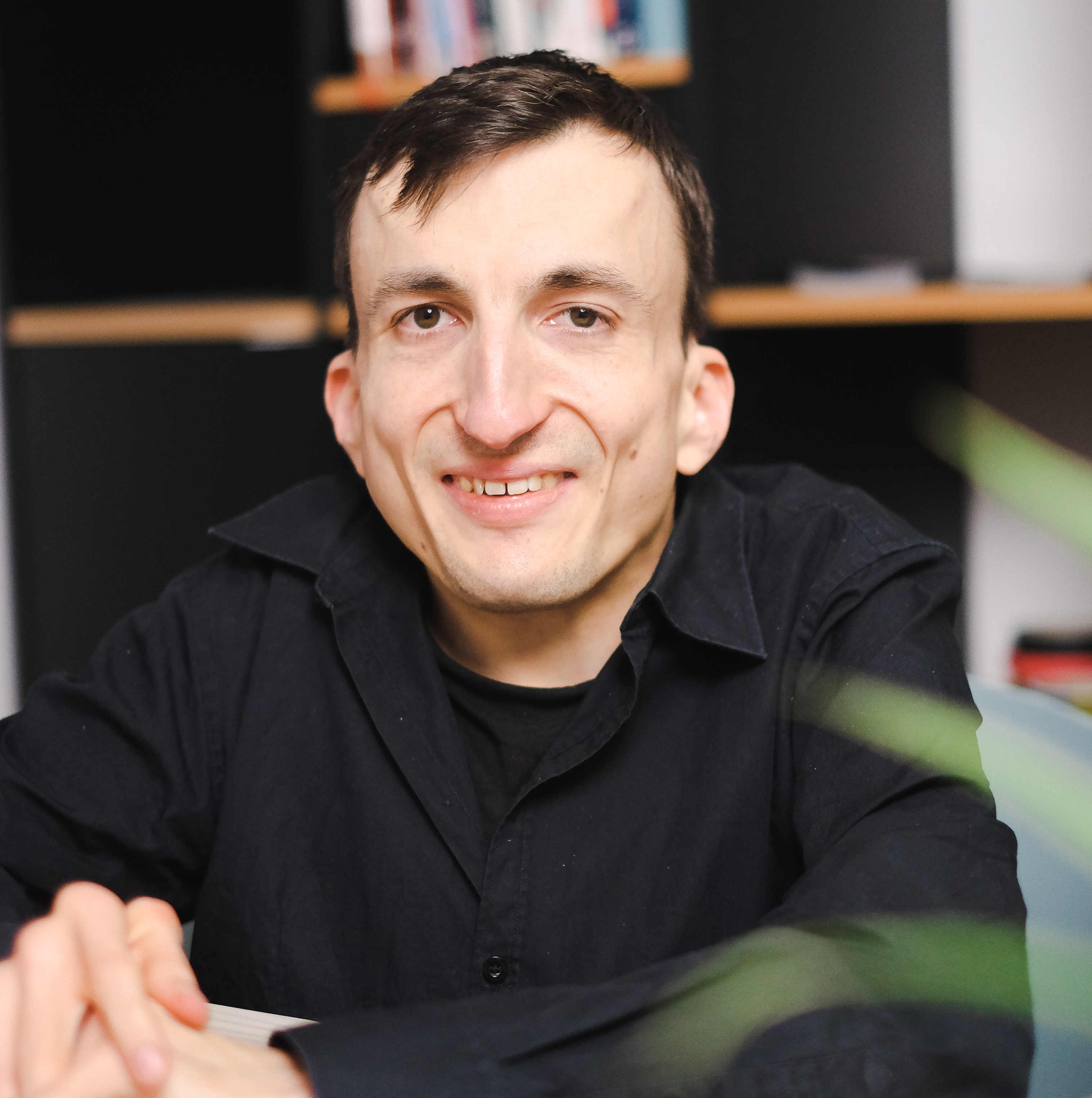
Welcome, everyone! I’m Benedikt, a postdoctoral researcher in applied machine learning at the at the Munich Center for Digital Science and AI, part of the Hochschule München University of Applied Sciences (HM). My current research explores the societal impact of artificial intelligence, particularly in the domains of education, art, and communication.
My academic journey began with a strong foundation in theoretical computer science during my master’s studies, where I focused on automata theory, logic, complexity theory, and approximation and online algorithms. I later transitioned to modeling and simulation, pursuing a Ph.D. in the field of pedestrian dynamics.
In my doctoral research, I specialized in large-scale pedestrian simulations, analyzing various microscopic models and developing efficient parallel algorithms Notably, I investigated dynamic navigation field computation in changing environments—a problem closely related to solving the Eikonal equation efficiently. I also introduced parallelism to the optimal steps models, a key class of microscopic simulation models developed by our research group.
I earned my Ph.D. at the Chair of Scientific Computing in Computer Science (SCCS), Technical University of Munich, in cooperation with Hochschule München University of Applied Sciences (HM). During this time, I was an active member of the Pedestrian Research Group and a core contributor to the open-source pedestrian simulation framework Vadere.
Today, my interests have broadened to include the communicative capacity of AI systems and their transformative influence on society. As digital technologies become central to our way of life, I believe computer scientists must help shape this transformation—not as unchecked forces of progress, but as thoughtful enablers of one of the most vital interdisciplinary projects of our time.
At the heart of this project lies a philosophical conviction: we can be Nietzschian to make life interesting and Kantian to make life bearable. This principle also informs my fascination with creative coding, where programming transcends utility and becomes a mode of artistic expression. For me, code is not merely a tool for building applications—it is a medium for expression, a form of art, a way to couple mind and world, and an end in itself.
Computer science, at its best, opens the door to autonomy and agency, creativity and imagination, beauty and freedom—in short:
“a world open for play.” – Robin Williams
Teaching, in this light, should be an invitation into that playful world—a path to self-discovery, agancy, autonomy and individuation. While it is widely accepted that computational thinking is an important skill, I believe computer science has the potential to offer far more than utility. It can—and should—be meaningful. As a scientific discipline, it should remain open to critique and mature enough to engage with other fields, learning from their perspectives.